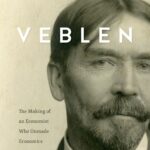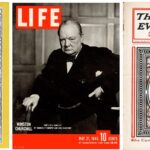This quote is from an older issue of the New York Review of Books, but it says a lot not only about the nature of the current administration, but also hints at the nature of our media and how it shapes our views. In many ways our culture is like particle physics: the very act of observation changes the nature of the particles themselves. How far we’ve come. The quote is from Joan Didion, one of the country’s best writers. In particular, I enjoy her essays. A favorite collection: After Henry.
“Similar use was found for the word “faith,” originally introduced as a way to placate Republican base voters while spending, since few elected officials are anxious to go on the line against faith, the minimum amount of political capital. The President could have “faith” in the Iraqi people, which in turn was how he could “believe” that “a free Iraq can be an example of reform and progress to all the Middle East,” which could even be (why not?) the reason we were there. Similarly, as he considered “problems like poverty and addiction, abandonment and abuse, illiteracy and homelessness,” the President could again have “faith,” in this case “faith that faith will work in solving the problems.” As for faith’s problem-solving role, or “compassionate conservatism,” the specific promise to the Christian right of the 2000 campaign, the administration now spoke not only of “faith-based” schools and “faith-based” charities and “faith-based” prisoner rehabilitation but also of “faith-based” national parks, which translated into authorizing the sale in the National Park Service’s bookstores of Grand Canyon: A Different View, the “different view” being that the canyon was created not by the continual movement of the Colorado River since the Tertiary Period but in the six days described in Genesis.
“Peculiarities (faith-based national parks, say) that a few years before might have seemed scarcely possible now seemed scarcely worth remark. The more high-decibel political comment had become, the more blunted it had become, the more confined to arguments about “personality.” “What a difference these few months of extremism have made,” Jimmy Carter said in the Fleet Center on the opening night of the Democratic National Convention; on the cable shows that evening any potential discussion of what a former president of the United States might have meant by “extremism” got beaten back by the more pressing need to discuss his “cranky” refusal to allow his speech to be “scrubbed” of negativity by the Kerry campaign.”





